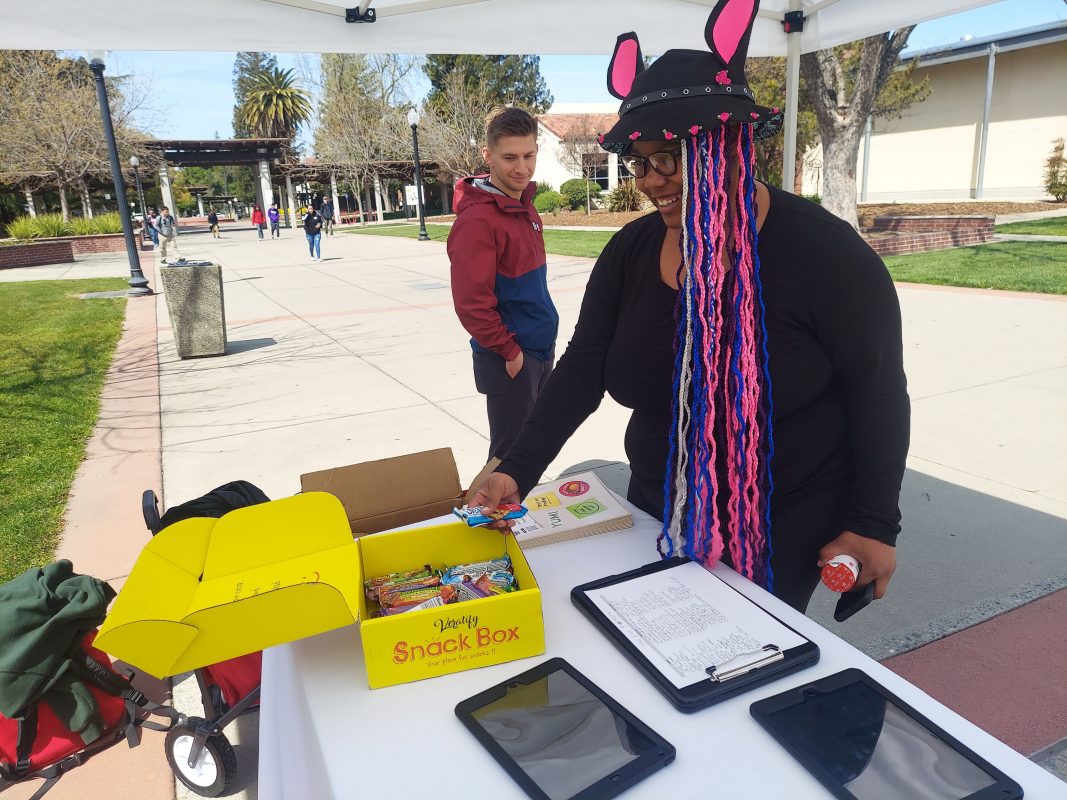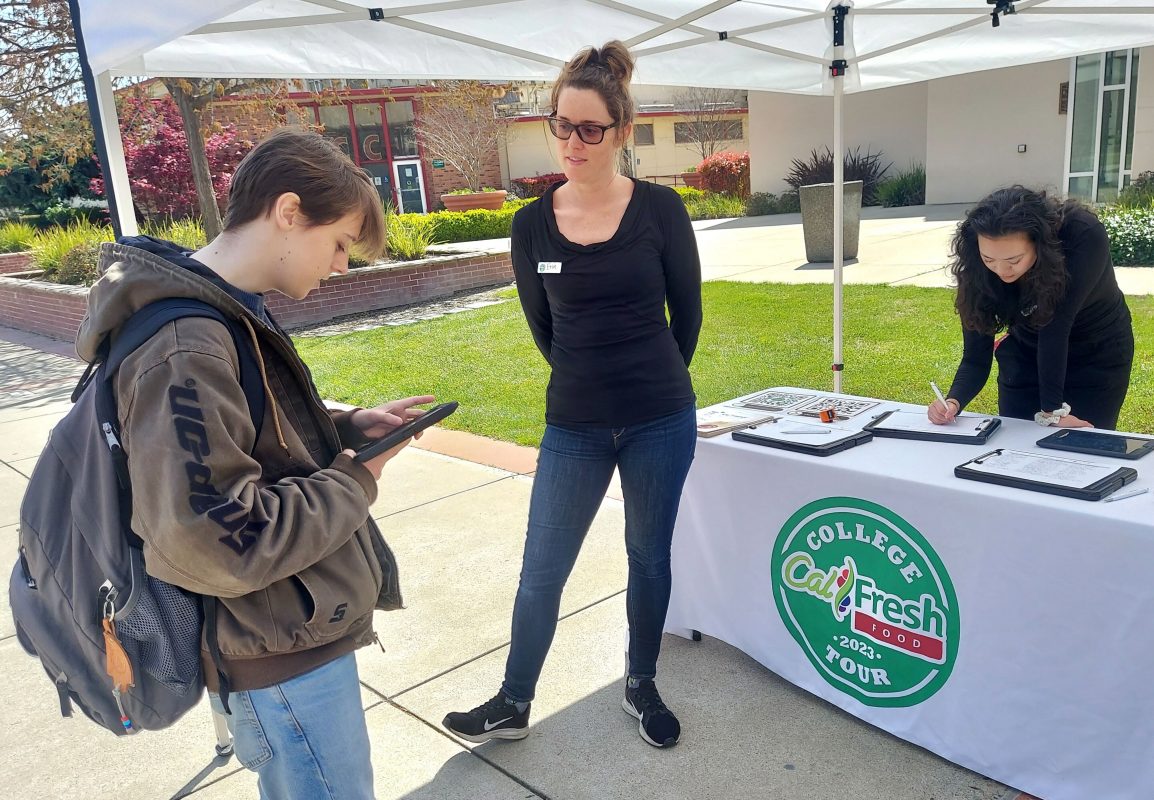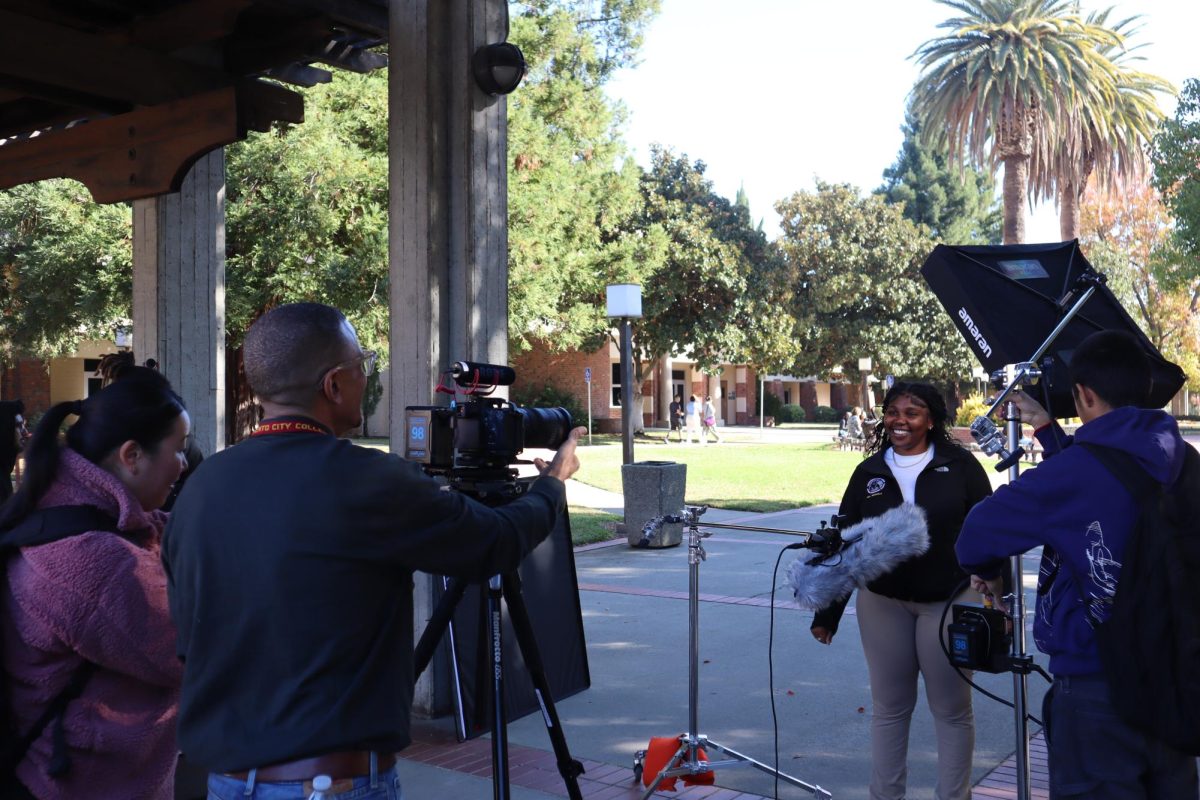Maya Jones, a third-year photography major at City College, has been on the CalFresh program for a couple of years now. “All of my money had gone to rent and I could not afford food — being on CalFresh changed that,” she said.
Jones feels it is a really helpful program and encourages students to sign up. But she feels CalFresh is a vastly unknown program to college students and knows that a lot of students are struggling.
Jansen Engelbrecht, event manager of the CalFresh college tour, educated around 200 students at City College on April 5, on the benefits associated with CalFresh.
Three CalFresh representatives visited City College to promote the federally funded program to students on campus. The program benefits people with low-income by giving them the ability to buy nutritional food that they might not otherwise afford.
Erin McMichael, event representative for the tour, is also on the CalFresh program herself. She spoke from her own experience saying that “being in school and working is really challenging, and having the money to buy groceries is one thing I do not have to think about now.”
Engelbrecht had students take a screener at the CalFresh booth to see if they are eligible for the program. Questions included the students’ age, if they live at home, if they are a parent with a child under the age of 12, if they work more than 20 hours, along with a couple other questions including residency.
If they are found eligible, Engelbrecht said that Sacramento County will try to process applications within 30 days, because they don’t want students to go hungry for too long.
Once the application process is finished the person will receive an Electronic Benefits Transfer card (EBT) that they can take to an EBT accepted grocery store to buy food. Each month that card will be refiled with the benefits the person qualifies for.
Engelbrecht was once a student himself and said “he doesn’t want to see students struggling with food insecurities.” He feels it often can be hard for students to pay for tuition and books, and now they don’t have to spend all the extra money on groceries.

Angelica Cortez, a freshman anthropology major, and Melissa Banda, a freshman psychology major, are sisters both at City College who room together and said they spend around $500 a month on groceries. With only one of them working, they see the benefits of signing up for the program because the money they spend on groceries could now go toward other expenses.
Ari Boling, a freshman anthropology major at City College, was interested and wanted to learn about the program. “The first time I heard about CalFresh was when I saw the booth on campus,” Boling said.
Boling took the screener but did not qualify because he lives with his parents and does not currently have a job. But Boling is still glad he stopped at the booth because when he moves out and gets a job, he says, “it would help lessen the load of the financial burden on buying food.”
During the pandemic, CalFresh recipients received additional benefits referred to as “emergency allotments.” That meant that those on the CalFresh program were allotted extra money to help them get through the pandemic.
This April, those additional benefits have been eliminated, ending an almost three-year extra supplement that had helped recipients on the program.
McMichael said from the conversations she has had with students, taking away extra benefits affected some students but did not make much of a difference to others.
The students it did affect, McMichael said, were upset because it was a loss of $95 to $100 a month. “This can be a lot of money,” McMichael said. When students are not making enough to get that hundred dollars back and there is not another resource to take its place, it can make daily life more challenging.
Emergency pandemic benefits are not coming back, however, student exemption requirements that students can meet to be qualified were expanded recently. McMichaels said that could be “a positive help for students.”
Mariah Orsulak, an intern from Chico State has been working at the CalFresh tour booth since January. She encourages students to stop by the booth and answer the questions on the screener. The booth will be back at City College every couple weeks for the next several months.
Orsulak said students who qualify can be eligible for a couple hundred dollars a month or as low as a minimum of $23 a month. But $23 is still something, she said. “It’s a chicken. A chicken you might not have been able to purchase otherwise.”

































